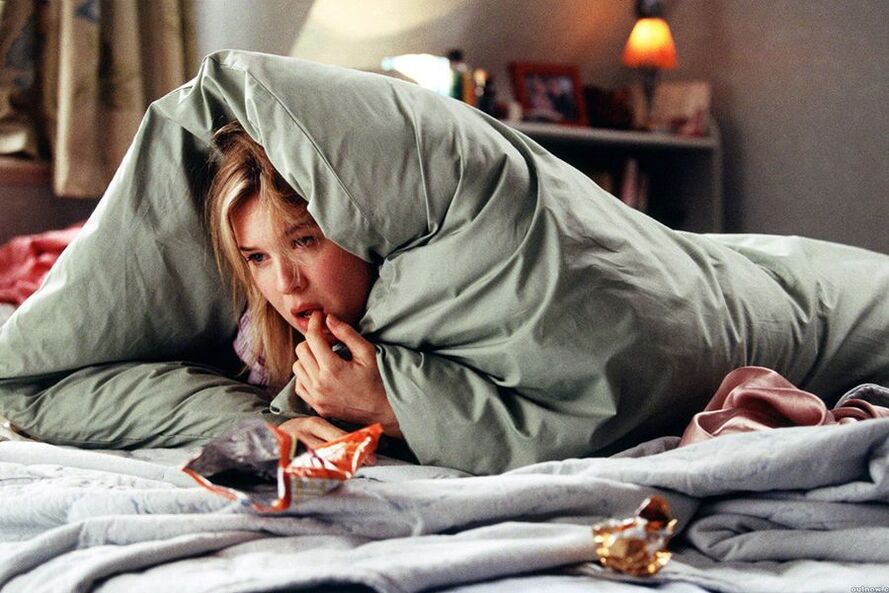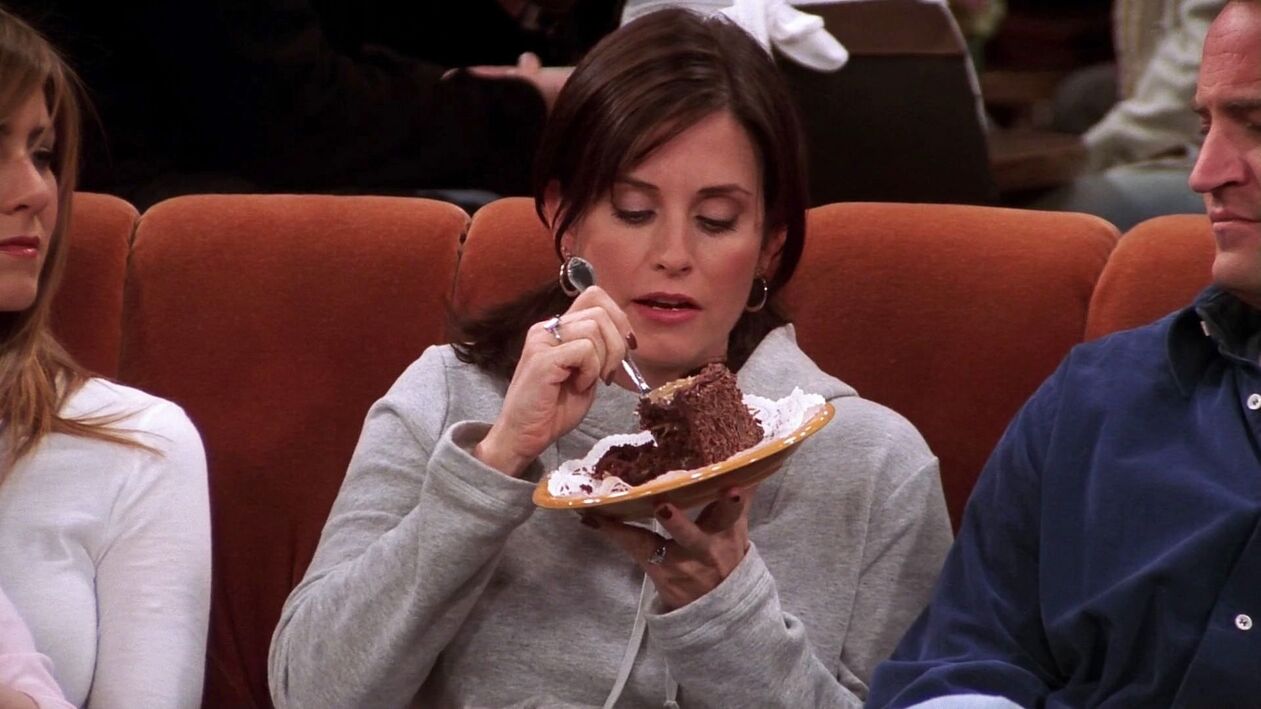
The title includes a popular query in search engines. However, this article does not recommend "count to 10 and drink a glass of water. "Let's talk about one more thing: why force yourself to lose weight is a bad idea and a struggle with your attitude to food.
What's wrong with not eating to lose weight?
Practical psychologist: If you have a vision for proper nutrition, then you are in touch with your body - you hear its signals and know how to talk to it. If the body signals hunger, you will satisfy it, and if you are full, you will stop eating. The message "Do not eat to lose weight" means breaking this connection, self-confrontation and the appearance of auto-aggression. It turns out that you are taking measures against yourself to achieve the goal (weight loss). It is not goodOhboring and unhealthyOhin the.
Psychiatrist: Most people who lose weight as a result of a restricted diet will regain weight in 1-2 years. Moreover, 2/3 of them gain more than they lose.
Endocrinologist:The statement that you should not eat to lose weight is absurd. It is important to understand: what happens to the body? Perhaps this is due to hormonal characteristics, not malnutrition.
And what is it about - a healthy attitude to food?
Psychiatrist: This happens when regular meals and snacks are not accompanied by anxiety, embarrassment and guilt. Lack of "forbidden foods", diet and calorie counting. And when given the opportunity to enjoy the meal.
Endocrinologist:It’s about treating food as a condition for a full, happy life. And not instead of joy and pleasure.
Practical psychologist: Do not focus on the shortcomings of your body that need to be "corrected" by eating or refusing to eat when you are hungry, and do not control your emotions if you do not overeat.
Can you tell me more? How and why do we eat emotions?
Practical psychologist: There are no good and bad emotions for the psyche, it can withstand anything it wants. He does not need food, alcohol, gadgets, or a television. However, there are times when a person's emotions are overwhelmed by food. Disappointed, I ate a plate of ice cream - relieved. His behavior was positively reinforced and the man began to use this strategy again and again.
Psychologist-consultant:Often people overeat because they do not rest. Let me give you an example. The young woman came out with a problem: in the evening she ate a lot and could not stop herself. It turned out that he works for three, because he does not know how to refuse his colleagues. No time to bite: always in business. But in the evening he cannot eat. In other words, a person weakens himself, works overtime, and is constantly stressed. How to replenish lost energy? Burger, potatoes, chocolate.
Is it okay to eat when you are bored, anxious, angry, tired, or depressed?
Psychologist-consultant:Separately, this is neither good nor bad: food is unconsciously associated with safety. Food for a newborn is not just food, it is intimacy, comfort, trust, acceptance, love, communication with the mother. Adults also sometimes eat to calm themselves. This is bad when it is the only way to deal with anxiety or fear.
Psychiatrist: With food we meet different psychological needs. For example, having dinner with your family is intimate. Going to a restaurant with friends covers the need for social interaction. The problem arises when food becomes a crutch for our negative experiences. This brings us to the topic of eating disorders (EID) or eating disorders. Psychiatry deals with these problems.
Wait! It turns out that if I eat chocolate an hour later and feel guilty - is it already a disorder? Should I go straight to a psychiatrist?

Practical psychologist:A difficult problem. There are times when a person runs away, eats in confusion, and does not pay attention to what he eats. Or he eats when he’s not really hungry - out of boredom or for company. This can be a nutritional disorder that can be corrected by a nutritionist. But at the same time, eating in addition to starvation is one of the symptoms of RIP. the line is very thin. And only a doctor can diagnose it. In our country, a psychiatrist deals with this.
Endocrinologist:This person is constantly sad, anxious, tired and overwhelmed by these problems. Maybe it's the result of constant stress. But they are also symptoms of endogenous depression and anxiety neurosis. A psychiatrist is also involved in diagnosing such conditions.
But isn't ERP Bulimia and Anorexia? It is difficult to confuse the symptoms
Psychiatrist: It's not just bulimia and anorexia. Eating disorders also include psychogenic overeating (called paroxysmal or compulsive disorder), eating unhealthy foods (Peak's disease), and loss of psychogenic appetite. These are disorders included in the International Classification of Diseases (ICD). However, there are diseases that are not included in this list, but that attract the attention of psychiatrists: selective eating disorders, orthorexia (when the desire for a healthy lifestyle goes too far) and pregorexia (the most severely restrictive diet for pregnant women). .
Practical psychologist: Psychology also distinguishes between overeating syndrome (BOE): a person eats almost nothing during the day, cannot sleep for a long time, or goes to the refrigerator when he wakes up a lot.
Is Obesity More ERP?
Psychiatrist: Not always. There can be many reasons - it's genetics, a sedentary lifestyle and hormonal disorders. RPP cannot be equated with obesity.
Practical psychologist: Yes, I agree. There are obese people who have absolutely proper nutritional behaviors. But it can be done in another way - for example, in patients with anorexia nervosa.
Have you heard that the problem of CPC is mainly related to women, adolescents and models? It is the truth?

Psychiatrist:Of course not. The disease can occur at any age in both men and women. For example, selective eating disorders most often occur in children - the child eats only certain foods.
Practical psychologist: Anorexia and bulimia are more common in women. But compulsive overeating is the same for men and women. Therefore, RPP is not just a women's problem. Yes, teenagers, models, athletes (rhythmic gymnastics, figure skating, sports dancing), TV presenters, bloggers, actresses - all those who are visible and whose work depends on their appearance are in danger. However, the problem can affect anyone, including those who are far from the modeling business or beauty blogs.
It is believed that this is an attempt to draw attention to various nutritional problems. Is that so?
Practical psychologist: There is such an opinion, but it is not scientifically based. Yes, during therapy, this RPP may have been initiated when it was not taken by human peers. For example, for a 13-15 year old girl, it is important that the boys look at her and her friends like her, so she sat on a strict diet. Also, food-related problems are an attempt to distract the child’s parents, often unconsciously. But these are special cases. It is wrong to think that the need to pay attention is the main cause of eating disorders.
What is the reason?
Practical psychologist: There are three groups of reasons: biological, psychological and social. Biology - such as genetic predisposition to RPC - can unfortunately be inherited. Psychological - domestic violence, the prohibition of negative emotions, the breakdown of the relationship between parents and children (for example, if the child's parents are cold, away from them). Social - the worship of the ideals of beauty, thinness, hooliganism.
PsychiatristA: There are some personality traits that contribute to the development of FID, such as perfectionism or hyperresponsibility. Family nutrition, weight, and body shape also play a role. Just as a child can be rewarded with sweets for good behavior and learning, it’s stuck: because I’m good, you can get candy. Very well? I'll take ten.
Psychologist-consultant:Many patients with ECD have experienced physical or sexual abuse. For many, food can also help them to take advantage of the situation. For example, one of my clients needed weights to protect himself from men. During the therapy, we learned that a girl of school age was in an unpleasant situation with an adult man. The client was surprised to remember that the incident "seemed to be forgotten, " but it continued to affect the girl's behavior as an adult. They also expressed the belief that men love only slim. If so, being overweight has helped her become "safer, " meaning men don’t.
How widespread is malnutrition in society?

Psychiatrist: The prevalence of RPC in this world is estimated at about 9%. High prevalence in risk groups. There are studies of teenage girls who reported that about 13% had CRP symptoms before the age of 20. Anorexia is one of the most deadly mental disorders, ahead of chemical dependence.
Practical psychologist: It is difficult to say the exact numbers, because people with JPA often do not understand that they need help. There are numbers for the United States because it is the center of research and statistics on eating disorders: an estimated 30 million people live with eating disorders. There are twice as many women as men (20 million vs. 10 million). And at least 1 person in the world dies from RPE every hour.
What are the symptoms of RPE? Can I diagnose it myself?
Psychiatrist: In general, the main symptoms are:
- After eating, a person vomits or makes up for it in other ways, such as excessive physical exertion (physical tyranny), diarrhea, and diuretics.
- Strong fixation on weight and figure (you can’t add / lose a gram or a centimeter! ).
- Many efforts to reduce weight and body weight.
- Lots of different dietary rules (I only eat protein, I only eat vegetables, I only eat red).
- Constant thoughts about food and body weight, fear and feelings of guilt and shame. When food-related thoughts and behaviors cause a lot of suffering.
- Loss of control over the amount eaten.
However, many people have these symptoms to varying degrees. Is there an accurate diagnosis?
Endocrinologist:RPD is a systemic chronic disease. It causes changes in the metabolism of systems and organs, and changes in a person's neurohumoral regulation. This is a complex problem that can occur in neuroses, organic pathologies of the brain, organic trauma and depressive disorders.
But first you need to determine the cause of the symptoms. For example, if a person runs to the refrigerator at night, they need to know the amount of glycogen to eliminate insulin resistance and type 2 diabetes.
What if you realize that you or your loved one has RPP?
Practical psychologist: If available - consult a psychiatrist for diagnosis. If you suspect a close person of RPP, it is more difficult: he often refuses, does not want to admit that something is wrong with him. Unnecessary pressure, on the other hand, can undermine trust. Let your loved one know that you are on his or her side and that you are ready to help and support him or her.
Who treats ECD? Just a psychiatrist?
Psychiatrist: No. A psychiatrist diagnoses. Depending on the disease, a psychiatrist, psychotherapist, and clinical psychologist (as prescribed by a psychotherapist) will treat you. Why is it so important to see a psychiatrist in the first place? Because it can reveal concomitant conditions such as depression or anxiety disorder, which occur in about 80% of people with RPD. Treatment depends on the severity of the disease. It can be drug therapy combined with psychotherapy (group, cognitive-behavioral, dialectical behavior). Family therapy is also recommended.
Psychologist-consultant:Anorexia and bulimia are primarily treated by a psychiatrist. Emotional overeating - psychologist, counseling psychologist. Obesity - a nutritionist-endocrinologist with a psychologist or psychotherapist (need to check hormones, whether there is a metabolic disorder).














































































